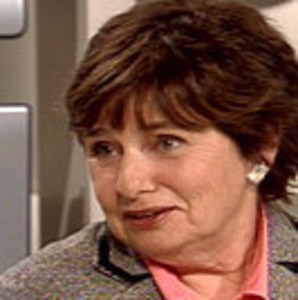
In February, Justin Trudeau shocked Canadians when he told a Radio-Canada interviewer that if the Canadian government put any constraints on abortion or repealed gay marriage, “maybe I would think about wanting to make Quebec a country.” The blogosphere and Twitterverse went ballistic. Most people expressed incredulity that the scion of Canada’s most ardent and influential federalist could so casually – so publicly – consider aligning himself with the notion of Canada’s breakup.
The only explanation his defenders could scrape together for this diamond-studded gift to the ever-shrinking base of Quebec’s grizzled, ember-stirring ultra-nationalists was his youth, naiveté and political inexperience.
What excuse, then, can anyone offer Michael Ignatieff for yesterday’s monumental gaffe? During a BBC Scotland broadcast of an interview about Scotland’s independence referendum, Ignatieff was heard to say, when asked if he foresaw full independence for Quebec, “I think eventually that’s where it goes.” He elaborated on his remark with the explanation that Quebec and Canada have very little to say to each other any more and the two are “almost” separate countries.
Unlike his famous, impulsive observation about Israel’s actions in Qana during the 2006 war with Lebanon being “war crimes,” an objectively unsupported opinion he was forced to retract and apologize for later, Ignatieff’s stance in this case seems to arise from intellectual conviction. Both Scotland and Quebec have had federal powers devolved to them. Devolution, Ignatieff claims, is “a kind of way station. You stop there for a while, but I think the logic eventually is independence – full independence.”
Maybe that is true and maybe it isn’t. Logic doesn’t mean very much in politics, and surprises are more often the case than not. But the validity of Ignatieff’s opinions aren’t the issue here. It is the irresponsibility of his voicing that particular opinion through that particular medium.
How many years did Ignatieff spend in active politics? How many times has he seen a mushroom cloud of media mania erupting from a firecracker-sized remark?
And given the answers to these questions, how obtuse can an intellectual of his calibre be not to know the difference between a professor’s private hypothesizing to 40 students in a classroom at home, and a former politician’s bruiting his blessing of Quebec independence to the entire world via a foreign journalist?
Because “blessing” is exactly how it will be interpreted by the ideological jackals of the separatist movement. Michael Ignatieff, former leader of the party of Pierre Elliott Trudeau, contender for the leadership of Canada – including Quebec – it will be duly noted, has officially accepted the idea of Canada’s breakup with total sangfroid and equanimity. Oh, of course he backtracked later in the interview to say “it is my fervent hope that separatists are defeated,” but that rings a little hollow from someone who has just handed those same separatists a metaphorical bunker buster.
As an anglo Quebecer, I am simply flabbergasted by Ignatieff’s facile comparison of Scotland and Quebec. Their histories, their geo-politics, their demographics, their cultural and linguistic properties: All are so radically different from each other that the only single point of comparison between the two is ethnic nationalism straining to realize itself as a political as well as a cultural entity.
Ethnic nationalism is not always unhealthy. When an ethnic group is actively persecuted within a larger, hostile body, seeking an independent political status as a means of securing its own safety and freedom to self-actualize is justified. I can’t speak to the roots of Scottish ultra-nationalism; that’s not my bailiwick. But I can speak to the roots of ultra-nationalism in Quebec. Here, where ethnic québécois are both linguistically and culturally secure – nay, flourishing – the ethnic nationalism that fuels Quebec separatists is inextricably tied to xenophobia, to an active resentment of anglophones and other minority groups. All that stands between us and complete political dhimmitude is the Canadian Charter of Rights and the federal government’s control over key services. Professor Ignatieff has just cheerfully thrown us all under a bus for the pleasure of adding colour to an international interview. Orwell was right about intellectuals. Professor Ignatieff knows what I mean.
bkay@videotron.ca
National Post
































Laissez un commentaire Votre adresse courriel ne sera pas publiée.
Veuillez vous connecter afin de laisser un commentaire.
Aucun commentaire trouvé